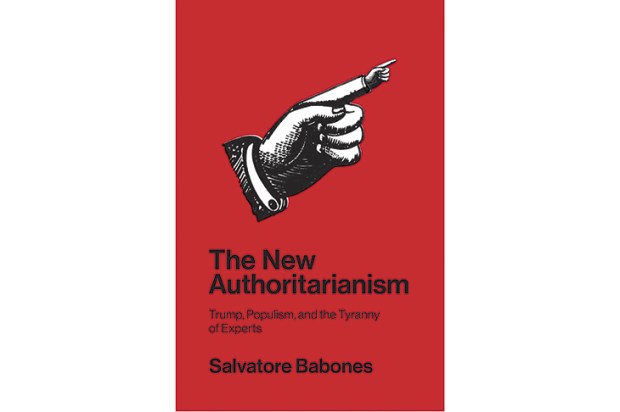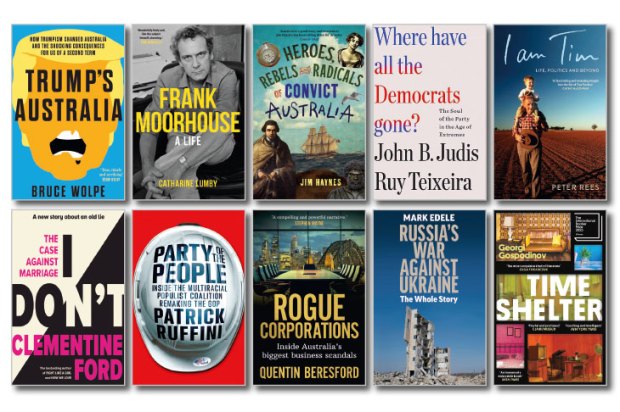Cory Bernardi’s book is a reminder of the traditional values that made Australia and inspired earlier generations to fight for its very existence. Which perhaps explains why The Conservative Revolution has provoked such confected furore. Already this year, the Liberal senator has been denounced as a ‘hater’, ‘sexual beast’ and ‘predictably outrageous’ — and that’s before parliament resumes.
The episode once again shows how the elites will launch a powerful campaign against anyone who challenges the so-called progressive agenda. Their long march through our institutions only partly explains their success. Almost unnoticed, real political power is now more concentrated in fewer hands than in any similar democracy. If not advancing the elite agenda, the duopoly is unwilling to disturb it. In addition, a significant number of media practitioners today have either forgotten or have never accepted C.P. Scott’s prescription that comment is free, but facts are sacred. They spend their time indulging in campaign journalism.
Meanwhile, the now powerful elites demand tolerance for their ideas while seeking to ensure intolerance for all other ideas. When disturbed they invariably resort to ad hominem abuse and entrenching their achievements through the doctrine of political correctness.
Which is why most of the 200-plus ‘reviews’ of Bernardi’s book posted to Amazon are by people who clearly have not read it. They nevertheless denigrate it as, for example, ‘lavatory paper’ or ‘paper for the bottom of birdcage’ and say that it will find a place on the bookshelves of their library — ‘next to Mein Kampf’. What they avoid is in any way answering any one of his several reasoned, well researched and often nuanced propositions.
Take abortion, a classic case of the triumph of the elites’ agenda. This could never have been introduced at the time through the legislatures either in America or Australia. But in 1973 a team of activist judges on the US Supreme Court provided the answer. So in Roe v. Wade the US Supreme Court invented a constitutional right to abort. And predictably, Australian judges were not far behind in legislating from the bench. With this high judicial imprimatur, attitudes began to change. And public concern was assuaged by an assurance that abortions would take place only in exceptional circumstances and principally for the mother’s health and welfare.
But that is not what happened. Bernardi’s estimate is that between 80,000 and 100,000 unborn children are now dispatched every year, and consequently he concludes that abortion has become an ‘abhorrent form of birth control for some women’. But the elite position is that debate is well and truly closed and not to be reopened. The ABC’s Beverley O’Connor reminded Bernardi that, after all, Roe v. Wade, handed down in 1973, was ‘well over 30 years old, even older’. She complained that his figures are not official, but there are no such figures, presumably because the public would be shocked to hear them.
Bernardi does not propose any action. His egregious offence is that he has dared raise what is forbidden. And that is the sad situation in our democracy today. The debate is closed whenever the elites say so.
Anthony Albanese says he finds aspects of the book offensive and demands that the Abbott government denounce it. And yet, the founders and the greatest leaders of the Labor party would have agreed with much of what Bernardi says.
In the media’s telling, Bernardi is calling for the reintroduction of WorkChoices, tainted as it was by its centralist reliance on the federal corporations power. Yet all he suggests is a right for individuals to negotiate working terms and conditions directly with employers, and subject to safeguards. This is in the context of the previous government removing even the negotiation rights granted during the Hawke-Keating era.
A spokesman for the Prime Minister has reminded the media that Bernardi is a backbencher and this book does not set out government policy. In the same way as when Tony Abbott wrote Battlelines in 2009, it did not set out official Liberal policy. The elites didn’t worry then, presumably, because they believed in their propaganda that he was unelectable.
Nevertheless, this episode will remind Australians that the expectation now is that their elected representatives will not represent them but will do as they are told. While the Labor party has long been infected by the caucus pledge, the great founder of the Liberal party, Sir Robert Menzies, would be astounded by the fact that, for example, in the legislation for the proposed local government referendum only a token number of MPs were ‘authorised’ to cross the floor.
And because backbenchers must do as they are told, and are too often chosen for their loyalty to a factional powerbroker rather than on merit, any MP who thinks and publishes conservative thought is anathema. This only reinforces the power of the elites, making it easier for them to achieve their agenda and to protect each and every aspect of their achieved ‘reforms’.
This is done first by applying the doctrine of political correctness, which condemns anybody who dares speak in areas forbidden by the elites. And so Bernardi was eased out of the ministry for merely relying on a ‘slippery slope’ argument concerning same-sex marriage, although the High Court did precisely the same when it gave a wink and a nod to the Federal Parliament to legislate.
The second is through the lock step syndrome: the practice of oppositions not reversing the ‘reforms’ of their predecessors. As G.K. Chesterton said, the business of the Left is to go on making mistakes. ‘The business of the conservatives is to prevent the mistakes from being corrected.’ Only the exceptional conservative leader corrects ‘mistakes’, someone of the calibre of a Margaret Thatcher, Ronald Reagan or John Howard. Fraser never did, and of course it is too early to judge Tony Abbott.
A long time ago, I saw in Tony Abbott’s knapsack the ‘bâton de maréchal’. After reading this book I am sure there is also one in Cory Bernardi’s.
Got something to add? Join the discussion and comment below.
Get 10 issues for just $10
Subscribe to The Spectator Australia today for the next 10 magazine issues, plus full online access, for just $10.
David Flint is the author with Jai Martinkovits of Give Us Back our Country (Connor Court, 2013).
You might disagree with half of it, but you’ll enjoy reading all of it. Try your first month for free, then just $2 a week for the remainder of your first year.













Comments
Don't miss out
Join the conversation with other Spectator Australia readers. Subscribe to leave a comment.
SUBSCRIBEAlready a subscriber? Log in